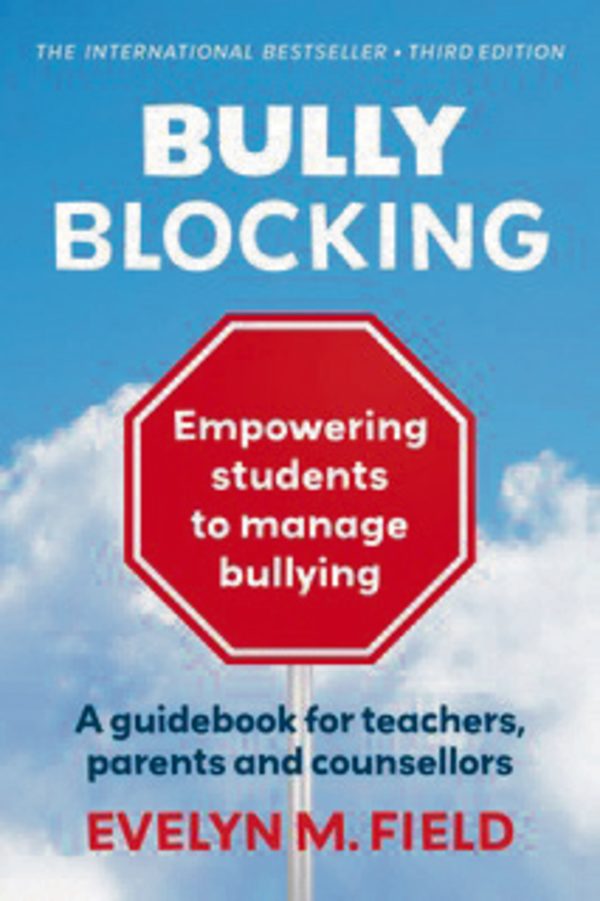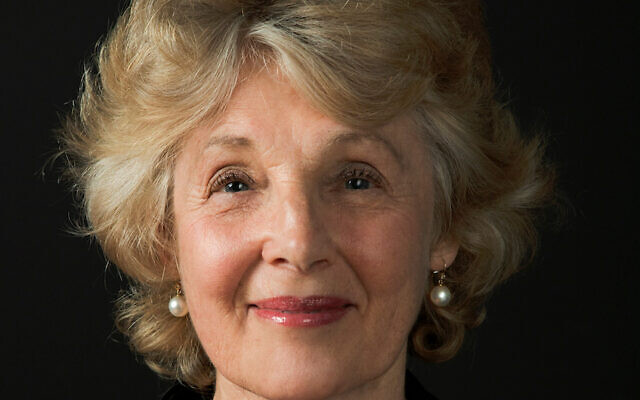How to stop a BULLY
Well-known expert on bullying, psychologist Evelyn Field has updated her book Bully Blocking: Empowering students to manage bullying.
As the iconic film Mean Girls returns to the screen in an adapted form, its popularity is a reminder of the ever-present problem of bullying. While verbal and physical bullying has existed since day dawn, the internet and social media have contributed to making bullying rife in society. Despite increased awareness of the damaging effects of bullying, it continues to rise in schools and the workplace. Many lose sleep at night wondering what they can do to stop bullying.
Well-known expert on bullying, psychologist Evelyn Field has updated her book Bully Blocking: Empowering students to manage bullying. A guidebook for teachers, parents and counsellors, to provide practical ideas for how to deal with bullying. Field has spent more than four decades helping students and adults develop social skills to manage bullying in school and the workplace. She worked for 17 years as a psychologist at Mount Scopus Memorial College.
Her book highlights research showing that one in three students experience bullying at school, four out of five school bullying programs fail, half of school bullying targets have symptoms of trauma, and that more than 50 per cent of students who are bullied at school are subsequently bullied at their work.

Field writes, “Bullying is a major issue facing kids today. My guesstimate, based on my research and experience, is that more than 15 to 20 per cent of all students have psychological symptoms caused by bullying.”
Speaking to The AJN, Field said, “We now know that bullying changes the brain and the body. That if I’m bullied at school, I’m more likely to have a heart attack when I’m older, put on weight. We know that bullying changes cognitive function.”
Field notes that despite all the research on the negative impacts of bullying and its ability to cause trauma to the bullied target as well as the bully, she believes bullying is still dismissed as a “rite of passage” and not taken seriously in many schools.
Field has observed that some schools are better than others at dealing with bullying, but that for a school to be effective in addressing bullying it requires that the school culture must be united.
“You need to have your board of management, your principal, your teachers all on the same page, all dedicated to saying we will reduce bullying. We will do our preventative programs and we will manage it.”
She said often teachers are trying to address bullying amongst students, but may themselves be subject to bullying, or have a board or principal that add to bullying or turn a blind eye. A survey by Latrobe University in 2019 found 80 per cent of teachers experienced some form of bullying and harassment from students and parents.
In her book, Field notes that common advice is often unhelpful. “Some targets are too ashamed to ask for advice and support, while others try to employ ineffectual advice from well-meaning adults, such as ‘Do nothing, walk away, tell the bully to stop.’ But whenever I ask a kid if that works, they shake their heads sadly and say no.”
She adds, “No wonder many kids regard schools as a painful and even traumatic experience … They realise that most teachers can’t stop the bullying, and some teachers are actually bully perpetrators. More than half the student population believes schools respond poorly to reports of bullying and that some make it worse. (Rigby and Johnson 2016).”
Regarding her advice for those who are being bullied at school she said, “What we need to teach children is number one to understand that there is a primitive instinct of fight or flight, but they also have to use their smart brain, their prefrontal cortex, and ask is this the best way to respond here?”

Field suggests asking questions to the bully or having retorts ready to disarm them. When dealing with social exclusion she suggests students find other friends to play with, and with support from parents and/or therapists consider which behaviours might be contributing to the ostracism.
As to how Jewish students could respond if they face antisemitic bullying, Field said that discrimination and antisemitism should be dealt with by the appropriate authorities, but that students could empower themselves with knowledge of their Jewish history and identity, stand tall and proud, have a neutral face (meaning don’t show emotion or anger), and have a few questions and/or retorts up their sleeve to challenge the bully such as “Can you explain to me why you think that way?”
Asked what she would like readers to take away from her book, Field said, “I would like to say that parents, teachers, therapists and schools all need to work together to create a more accepting environment and empower students to deal with all sorts of people as they go through life.”
Her book has received praise from Jewish school leaders including King David vice-principal David Opat who wrote, “It is very exciting that we now have the latest edition of Bully Blocking. For many educators and parents, this has become the bible for the management of bullying in Australian schools”. While Mount Scopus Memorial College deputy principal Kate Major stated, “Bully Blocking has a focus on empowerment and healing, as well as practical guidance for educators.”
Bully Blocking published by Amba Press is available now.


comments